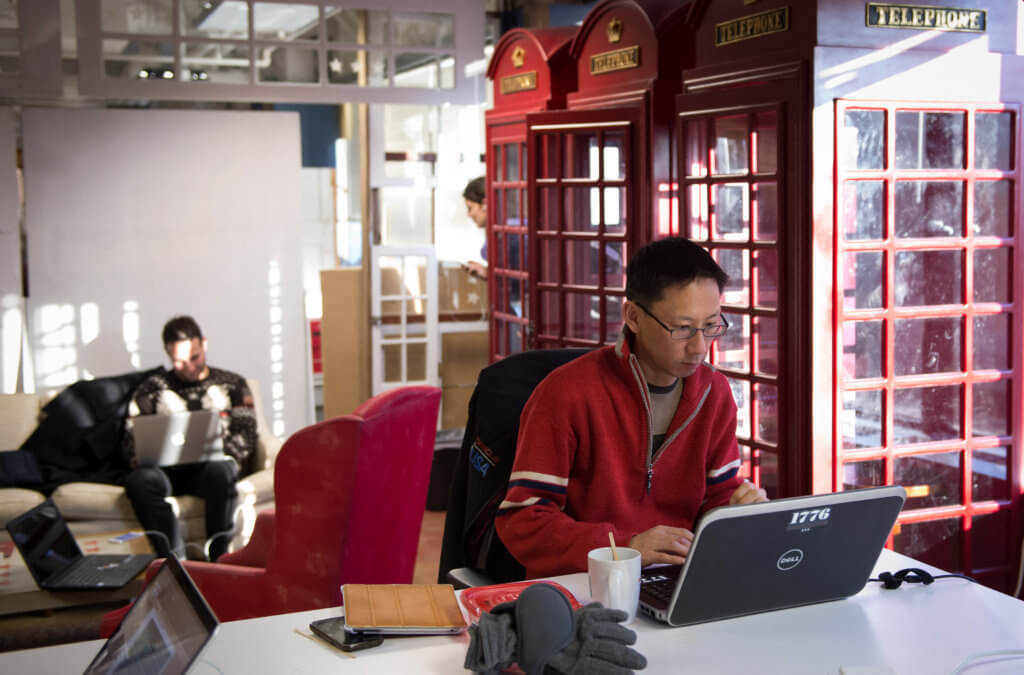According to the Cambridge dictionary, a freelancer is someone who does particular pieces of work for different organisations, rather than working full-time for a single organisation. A freelancer is also known as a free agent, unaffiliated or a self-employed person.
Freelancing is a great way to supplement income, especially for international students. Writing is a given in university, which makes it unsurprising why some students turn to freelance writing for a side income while abroad.
International students may also find their fluency in languages an advantage when applying for translation work.
But which countries allow students to engage in freelance work while on a student visa? How limited are they in terms of the types of jobs they are allowed to do as a freelancer? What kind of work hours are they entitled to?
The answer to those questions may vary. Here’s a breakdown of freelancing opportunities for international students in five countries:

Different countries have their own laws which may or may not permit international students to participate in freelance work while on a student visa. Source: Mladen Antonov/AFP
5 countries where students can and can’t supplement income by freelancing
Freelancing in the US
The answer as to whether or not an international student can engage in freelance work in the US is not a straightforward one. Freelance work is considered self-employment.
In 2019, Adrian Pandev, an employment-based immigration lawyer, notes that an F-1 student with valid post-completion OPT work authorisation may work for him or herself but it must be related to their academic field of study.
Quoting information from US Citizenship and Immigration Services (USCIS), he said:
“The exact language in US Immigration and Customs Enforcement’s guidance states: ‘A student on OPT may start a business and be self-employed. The student must be able to prove that he or she has the proper business licenses and is actively engaged in a business related to the student’s degree programme.’”
USCIS notes that those on an F-1 visa may not work off-campus during the first academic year, but may accept on-campus employment subject to certain conditions and restrictions. After the first academic year, USCIC notes that F-1 students can engage in three types of off-campus employment:
- Curricular Practical Training (CPT)
- Optional Practical Training (OPT) (pre-completion or post-completion)
- STEM Optional Practical Training Extension (OPT)
F-1 students could be eligible to work off-campus on a case-by-case basis as a result of special situations such as severe economic hardship or special student relief, while M-1 students can engage in practical training after they have completed their studies.
“For both F-1 and M-1 students any off-campus training employment must be related to their area of study and must be authorised prior to starting any work by the Designated School Official (the person authorised to maintain the Student and Exchange Visitor Information System (SEVIS)) and USCIS,” said USCIS.
Some international students have successfully managed to freelance in the US, but not without some hurdles.
According to The Open Notebook, Shi En Kim, a PhD student studying nanomaterials, was eager to engage in freelance work. She applied for part-time CPT. The CPT is authorised by the student’s university and must be part of students’ programme of study.
“I talked to my international student office, and right away they said no. I wasn’t happy. I didn’t want to give up,” she was quoted saying. Kim then approached her dean, who agreed to support her. They appealed to the international student office and got the approval she needed to write science-related articles on a freelance basis.
TL;DR: International students in the US may be entitled to work on-campus for up to 20 hours a week, but this does not include virtual or on-site based freelance work. Even if a student chooses to do virtual freelance work for an offshore company and receives payment via an account outside the US, they will be committing tax fraud as it is mandatory to disclose income earned while residing in the US. Freelance work could be possible under the CPT or OPT, but students should speak with their university for clarification.
[embedded content]
Freelancing in Canada
It is possible for international students to do freelance work in Canada. The country’s government notes that international students may be authorised to work either on or off-campus without getting a work permit, provided that they have satisfied the necessary requirements.
Hi. Study permit holders can be self-employed if their study permit allows them to work off-campus.
— IRCC (@CitImmCanada) June 21, 2018
International students who are working off-campus must adhere to the following guidelines to work without a work permit:
- Enrolled full-time at a designated learning institution (DLI)
- Enrolled in either a post-secondary academic, vocational or professional training programme
- A secondary-level vocational training programme (only applicable to Quebec)
- Their study programme is at least six months long and leads to a degree, diploma or certificate
- Have started studying
- Have a social insurance number (SIN)
[embedded content]
Freelancing in the UK
According to the UK Council for International Student Affairs (UKCISA), international students who are not from the EU are not permitted to set up their own business or become a free agent.
An employment guideline by the Career Services department the University of Sheffield states that international students (non-EU) cannot freelance in the UK whilst studying. This means that they cannot register, trade or market their business for trade whilst they holding a student visa.
In some events, some vacancies for part-time jobs which are advertised on student job portals such as Career Connect may be offered on a self-employed basis (also referred to as freelance work).
Before applying for such jobs, it is advisable to consult with a university advisor if such work can be undertaken by international students.
Students who are entitled to work on a freelance basis in the UK are responsible for paying all of their taxes and National Insurance contributions themselves. They are required to complete a tax return either online or paper-based too.
Freelancing in Australia
The short answer is yes, international students in Australia are permitted to freelance while on a student visa.
A maximum of 20 hours is allocated per week for international students seeking to work part-time on a student visa and they may be employed on a full-time basis during holidays.
According to the International Centre for Trade and Sustainable Development (ICSTD) Australia, international students aiming to be self-employed in Australia must obtain an Australian Business Number (ABN) to become a self-employed business or sole trader.
Additionally, applying for a tax file number (TFN) is essential for the students’ tax and superannuation purposes.
[embedded content]
Freelancing in New Zealand
The New Zealand government website notes that international students are not allowed to be self-employed (which includes freelancing).
In New Zealand, international students are only permitted to work for an employer and have an employment agreement.

International students who wish to work part-time in New Zealand are not permitted to register themselves as self-employed and must be tied to an employer with an employment agreement. Source: Dean Treml/AFP
Ultimately, whether or not you can engage in freelance work will vary by country. It is best to cross-check with relevant government websites and get confirmation from your international student advisor before doing any freelance work to ensure you do not break any laws while studying abroad.
from Freelancing Jobs – My Blog https://ift.tt/LyIVQTp
via IFTTT

0 Comments